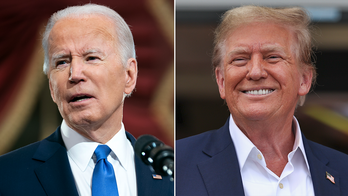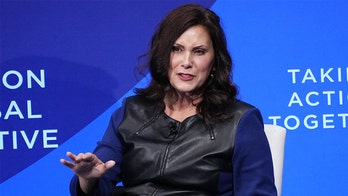
NPR President Vivian Schiller (AP)
The NPR executive under fire for canning Juan Williams has been intimately involved in federal brainstorming sessions on the "reinvention of journalism," a controversial exercise that so far has produced suggestions ranging from taxpayer-funded subsidies for news organizations to an AmeriCorps "journalism" division.
Vivian Schiller has become somewhat of a pioneer in the field of public media since taking the helm of NPR in January 2009. Though previously an executive with private-sector media giants like NYTimes.com, she's since overseen new projects to expand the reach of public radio and TV. On the side, she's participated in panels sponsored by the Federal Trade Commission and Federal Communications Commission as they try to draw up possible policy proposals for fixing journalism.
This movement, though, has generated controversy as some worry about what kind of role government and taxpayers could play and whether the new media landscape could be objective. Schiller has openly talked about public media filling the void left by "dying newspapers" while pushing for nonprofit media companies to band together.
"We have the megaphone," she said at a June panel discussion with the FTC. "And I would like to see us use that megaphone to expand the wonderful reporting that's going out to our audiences to include not just NPR and public radio news and information, but news and information from all of the new not-for-profits."
She called for a "deep collaboration" with other nonprofit startups, adding that "news literacy" should be taught to young people.
The handling of Williams' firing, though, stands as an example among NPR's critics of a bias that could spread if public media fills the private-media gap. Williams was fired last week after saying in a Fox News interview that he feels nervous when he sees people in Muslim garb on an airplane. Schiller later said Williams' beliefs should stay between him and "his psychiatrist or his publicist."
Dan Gainor, a vice president at the conservative Media Research Center, said the ongoing talks in Washington about the future of journalism have been dominated by liberal interests. He warned that the talks could eventually produce regulations, if not legislation, to pump funding into a new form of journalism.
"If you're going hat in hand to Congress to ask for funding, how aggressive are you going to cover that Congress?" he said. "What they're talking about doing is taking your tax dollars and mine and using it to fund a perpetual left-wing media."
Schiller has cast NPR as a non-partisan outlet. At an April forum sponsored by the FCC, she suggested the private-sector media could learn a thing or two from networks like NPR. She said the network excels at areas like foreign and investigative reporting, harnessing new technologies and reaching more diverse audiences.
"This is not your grandfather's radio. We are nimble, we engage our audience, we work with partners, we are eager to bring ever more like-minded partners into the public media," she said at a December 2009 FTC panel discussion, at which News Corporation CEO Rupert Murdoch also spoke. News Corporation is the parent company of Fox News.
A legal adviser with the FCC said Schiller's role in the "future of media" review has not gone much beyond the panel discussions. The talks will eventually lead to a final report of journalism-related recommendations to Congress and to the FCC.
The FTC has cautioned that its talks on media are just in the brainstorming phase. A document released earlier this year pitched a slew of taxes -- on consumer electronics, television broadcasters and other entities -- to publicly finance media, as well as the creation of a journalism wing for AmeriCorps and other funding mechanisms and tax breaks to prop up the industry. The FTC, though, said at the time that the document did not represent an endorsement of any of those ideas.
Schiller has been plenty active with other public media companies, however. Under her leadership, NPR has spearheaded the so-called Public Media Platform, a digital project meant to bring together content from NPR, PBS and other public media heavyweights. NPR has also started what it calls the Argo Network, which brings together websites on various topics from its member stations.
Schiller stood by the Williams firing in an interview with Fox News, calling Williams' remarks a "serious violation of our news ethics code." She apologized for the "psychiatrist" comment, calling it a "glib, thoughtless remark."




